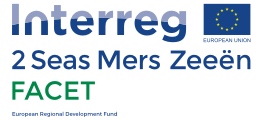To stimulate the shift to circular businessmodels, we need to understand how tourism entrepreneurs, particularly in SMEs, decide what circular practices to adopt. A review of the academic literature will inform our understanding of the motivations. The willingness of entrepreneurs to adopt circular economy practices depends largely on their perceptions of the benefits and barriers to this action. Business decisions on transitions towards more circular approaches would likely to be taken after considering both short- and long-term benefits, that would foster the business competitiveness and resilience. In the literature, synonymous words for motivation such as benefits, opportunities or push factors are often used interchangeably. While their meaning might be slightly different, they generally suggest positive forces that encourage the adoption of circular economy (CE) practices.
While the motivations/benefits could be financial, there are also many other types of benefits business decision-makers take into consideration when deciding to change their business-as-usual practices to circular approaches. In this review, FACET identifies three categories of motivations/benefits for businesses or entrepreneurs:
1. Direct or indirect financial benefits;
2. Global or local environmental motivations; and
3. Social motivations, in adopting (CE) practices.
Firms seek social benefits such as gaining legitimacy and reputation resulting from compliance with coercive regulative forces, normative and mimetic forces, and cultural cognitive forces when they adopt CE practices.
Nonetheless, there are also numerous barriers, identified in the literature, which pose formidable challenges to SMEs/entrepreneurs and hamper their efforts in adopting CE practices and transitioning towards CE practices. In the literature, terms such as cost, risk, pull factors are used to indicate these barriers. These terms generally suggest negative forces that discourage the adoption of CE practices. Those barriers could be classified into internal and external factors, while both might be interrelated and mutually reinforcing in the process of adopting CE practices. FACET has developed a CE adoption model looking into these factors (motivations & barriers, and their antecedents) that could influence the successful implementation of CE practices.
University of Greenwich will conduct a survey in 2021 to test and verify the model. We hope that tourism SMEs and entrepreneurs will offer their valuable time to participate in the survey. More information follows soon.

